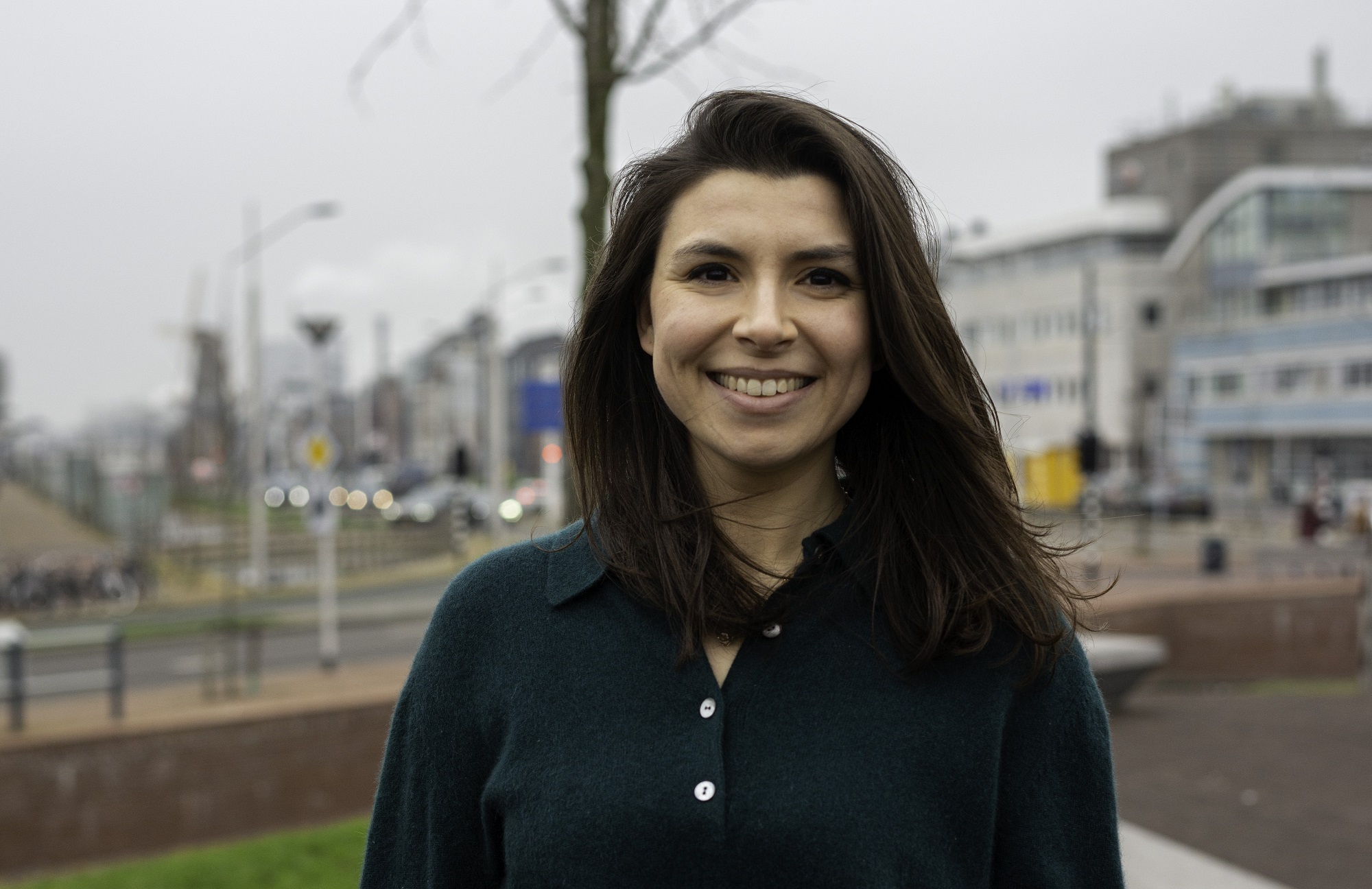Can you imagine a bra that detects cancer? Master’s student Rajae Atahiri did and hopes to build a prototype within five years.
Master’s student Rajae Atahiri: “My dream is to create a company that can help make technology more accessible to people.” (Photo: Maartje Rempt)
“I came to TU Delft from a university of applied sciences, or HBO (Hoger Beroeps Onderwijs), so I did a pre-master’s bridging programme where you have to complete the courses that you didn’t get at HBO. Right now, I’m doing a master’s in biomedical engineering and I started thinking about what I could do for my master’s project. I had this idea I really wanted to explore so I enrolled in an entrepreneurship course.
In 2017 I had an internship with an engineering firm here in Delft. I had to design a tool that helps with mammograms in a hospital, actually to redesign it. I started thinking why couldn’t we use something else? During that same year I was also taking a course on lingerie. I was thinking about tech ideas and wanted to combine these two things.
Maybe it sounds crazy, but what if we could design a bra that detects cancer? A bra is a product that is very near to the breast so maybe there is a technology that could help us to detect cancer in a different way. For the technical side, one of my ideas is to use ultrasound technology. It reflects a signal into an object and it gives you information back. We are also thinking about using infrared. But at this point, I don’t know for certain which technique can be used to get the results that we want.
‘Winning this prize means that companies see potential in it’
I have this idea from five years ago, but I needed to know if it’s plausible; could it be something that people want? That was the first step, to see if there were some companies interested in the idea because it has to be something that a company could sell. For me, winning this prize (TU Delft Impact Contest Ideation Award) means that there are companies interested in my idea and they see potential in it. Also, the women I interviewed thought it was a great idea and said they would use something like this, especially the women who have had breast cancer and are at a risk of getting breast cancer again.
I hadn’t thought so much about the technical part yet but I was just sharing my ideas with people around me, with professionals and experts. I realise that some of the experts are sceptical about the idea because it involves technology and there is a potential for making mistakes when it comes to healthcare. So, when is this product good enough that we can rely on it for a high percentage of detection? That is a big question, but it is not important at this stage. It is an important question at a later stage when we will design the prototype. But you have to decide to move past those kinds of questions to create a prototype that is near to the end result and then experiment with it.
My next step is to have a good plan, like a roadmap. To design that, I will need help of students from other faculties. Right now, I’m working with another student, Jasper Kuijt, and he is helping me with brainstorming about the technical part of this project. He’s a Systems and Control student so he knows a lot about signal analysis, artificial intelligence and programming. My expertise lies more in the biological side of things and the human body. I really like to strategise about the idea, but I do need some other team members to help me design the whole product.
I have a lot of dreams, but this one is very complicated because we don’t have the technology ready right now. Within five years I would like to achieve a working prototype. My dream is to create a company that can help make technology more accessible to people. That’s the Smart Bra; it’s a more accessible way to frequently scan the breasts so you don’t have to go to the hospital. There is a lot of stress in hospitals right now, with time and the equipment, and this might help to relieve some of that stress. I think we can do that for more products as well. Ultimately, I want to give people something they can use without obstacles like getting an appointment or expensive bills from the hospital or an uncomfortable procedure.”
Want to be featured in Humans of TU Delft? Or do you know someone with a good story to tell? Send us an e-mail at humansoftudelft@gmail.com
Heather Montague / Freelance writer



Comments are closed.